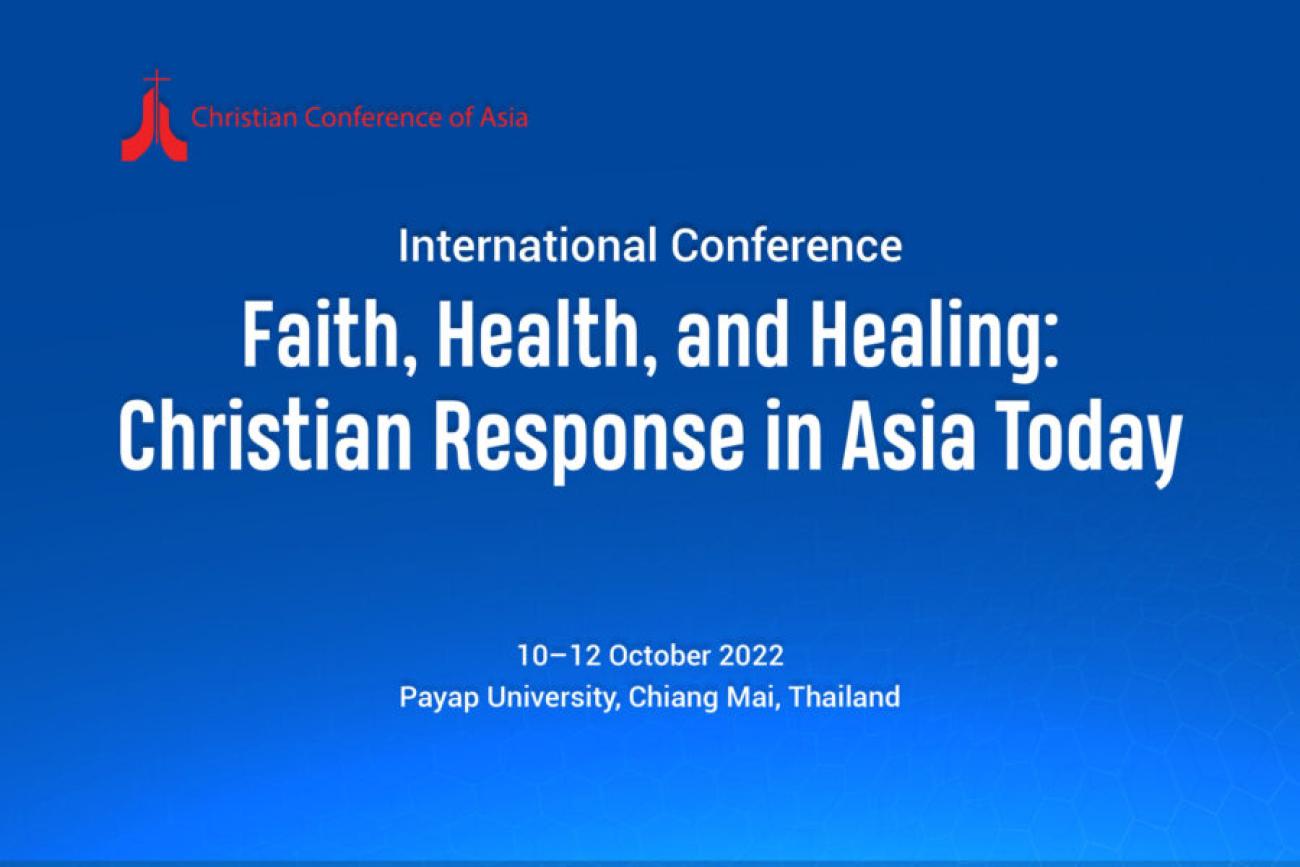CCA to hold International Conference on Asian Christian Response to Faith, Health, and Healing

‘Faith, Health, and Healing: Christian Response in Asia’
Chiang Mai, Thailand: An International Conference on ‘Faith, Health, and Healing: Christian Response in Asia’ will be held from 10 to 12 October 2022 at the Payap University Campus in Chiang Mai, Thailand. The three-day international Conference will bring together 60 participants, including about 30 experts representing 27 organisations and institutions across Asia. The Conference will discuss the approach of ‘health as a fundamental right’ being the impetus for health and healing ministries, and discern how churches and faith communities in Asia can play a pivotal role in health and healing services as part of their mission and witness. Although Christian missions have been pioneers in health ministries through the establishment of Christian hospitals and the delivery of healthcare over several decades, the increasing trend of commercialisation has affected medical institutions in recent times, including Christian medical missions. This commercialisation is antithetical to Christian values and distorts the mission of Churches in health ministries, especially when it comes to access to cost-effective treatment and care as well as with regard to facilities for HIV testing and counselling. The sessions will address ‘Health and Healing: Towards Transcending Suffering’, ‘Accelerating Health Solutions in the Post-Pandemic Era’, ‘Right to Health’, ‘Commercialisation of Medical Services and its Impact on Vulnerable Communities’, ‘Universal Health Coverage’, and ‘Models of Christian Health and Healing Ministry in Asia and Africa’. An Ecumenical Declaration on Health, Healing, and the Right to Life will be formulated and adopted as an outcome of the deliberations covering the broader thematic focus of the Conference on Asian Christian Response to Faith, Health, and Healing.










